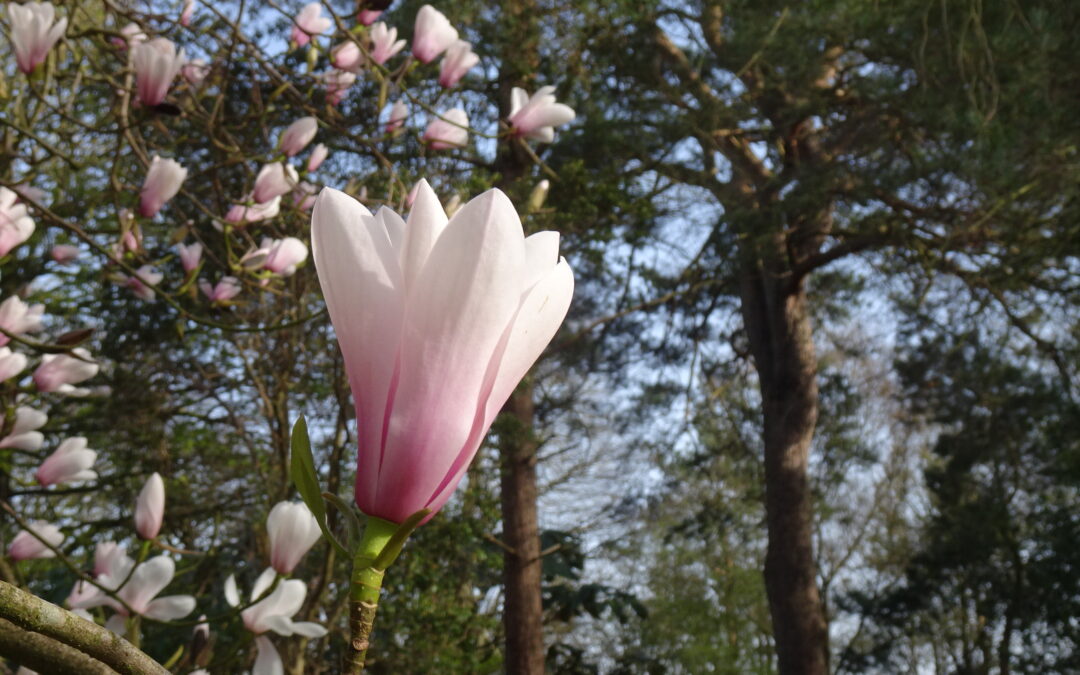“Narnia was never right except when a Son of Adam was king… It is not men’s country, but it is a country for a man to be king of.”
– Trufflehunter the Badger in C.S. Lewis’ ‘Prince Caspian’.
We are sometimes guilty of starting the gospel in Genesis Chapter 3 with what is colloquially known as ‘the fall’. However, the first chapter of Genesis makes for fascinating study, even leaving aside the ongoing debate over the origin of biological life. In these days where identity lies at the heart of so much agony, especially amongst younger people, there are helpful insights to be found in the first chapters of the Bible.
Christians assert that we are different because we have been created in the image of God. Put simply God wants us to be His image-bearers. We are also told that we are to rule over/subdue all creatures in Genesis 1:26 & 28. Other translations use… ‘have dominion over.’ What ruling, subduing, and having dominion over entail has again generated a lot of discussion. It is patently obvious that we have not and do not live up to this momentous responsibility. Genesis 3 gives us the explanation in the context of our relationship with God. There were, and there are, consequences to us eating the fruit of the tree of the knowledge of good and evil. However, we were not absolved of our responsibilities, they just became a whole lot more difficult for us.
But there is more to who we are than only being His image-bearers.
We are His creatures, first and foremost. We can’t stand on ceremony as image-bearers when God also tells us that we’re made from the dust of the ground, both before ‘the fall’ in Genesis 2:7 as well as after ‘the fall’ in Genesis 3:19. According to Genesis Chapter 1 we were made on the same day, the 6th, as all the other land animals. God was pleased with how they turned out … He ‘saw that it was good’ in Genesis 1:25, before He went on to make humankind.
Like the creatures of the sea and the birds of the air created on the 5th day (Genesis 1:20-22), human beings are told to be fruitful and multiply, and to fill the earth (Genesis 1:28). God does not see us as having the earth to ourselves and over-running it. Recognising that biological life involves reproduction, an increase in numbers suggests that some kind of management is needed. Is this what is meant by ruling, subduing, and having dominion over the creation? We are not told what the various outcomes that God envisaged were, but it is safe to say that they would not involve damage, destruction, loss of life of both human beings and of animals, pollution, etc. If we are in any doubt about this, let us ask ourselves if, when God is looking at our world today, would He be able to describe it as ‘good’?
God did not stop at creating us and commanding us and the animal kingdom to proliferate, He also provided food for us and for animals – plants. It is clear that we can use the earth’s resources to meet our needs, but at the very least this is to be balanced with how we look after the earth on behalf of God. We could go further and say that our primary identity is as carers of God’s creation and accountable to Him for how we do this, as this comes before God’s care of us in the Genesis 1 narrative!
CS Lewis’ Trufflehunter the badger sums it up beautifully… this world is not our world, but it is ours to be kings and queens of. What a responsibility, what a privilege, what an identity!
Ethel White is a retired crop scientist having worked with the Agri-Food and Biosciences Institute in Northern Ireland. She edits a monthly Creation Care e-zine and is keen to explore how faith and farming are connected.
Please note that the statements and views expressed in this article of those of the author and do not necessarily represent those of Contemporary Christianity.


Gotta love a talking badger! But yes, since we were made “in God’s image”, the expectation would be that our exercise of ‘dominion’ would be in the style and spirit of our Creator – who does not lord it over creatures, but invites loving, joyful relationship, delight and spends Theirself for the blessing of the ‘least of these’ … When we learn to use our power to serve -rather than deplete, rape, devastate, destroy the land and its inhabitants- the kingdom of God will finally have come and God’s will be done on earth as in heaven.